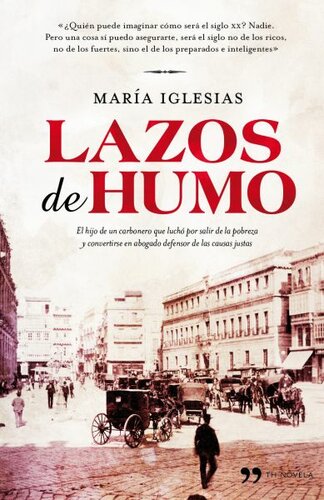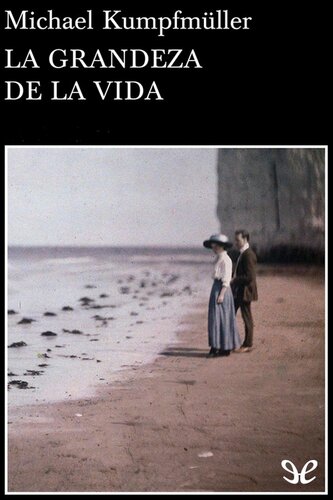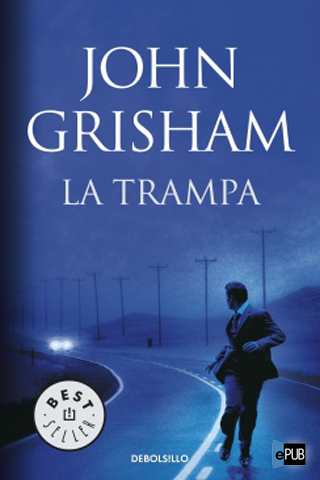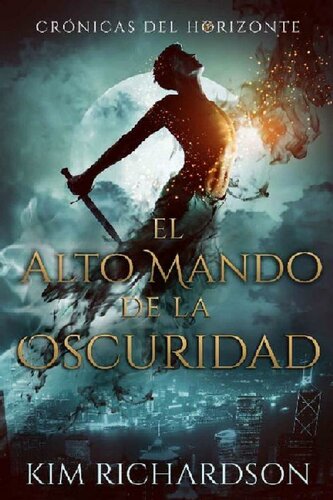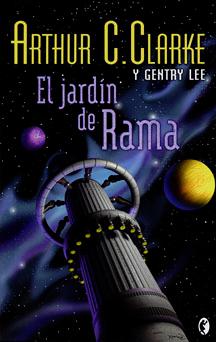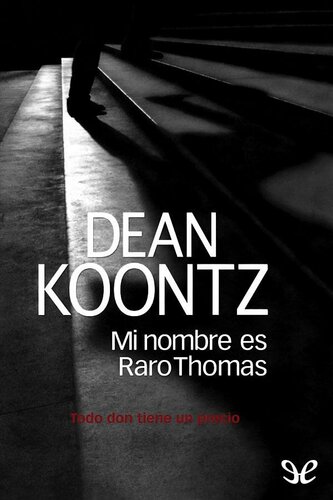oleebook.com
Media Alma de Olivia Atwater
de Olivia Atwater - Género: Ficcion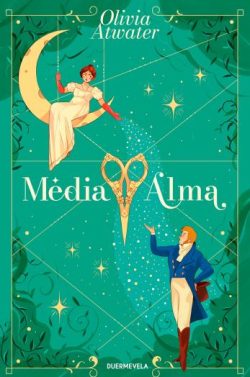
Sinopsis
En plena época de la Regencia, Inglaterra no está preparada para lidiar con una joven como Theodora Ettings. Dora, que de niña perdió media alma a manos de las hadas, a sus veinte años está muy lejos de ser la señorita casadera que su familia querría. Incapaz de sentir miedo o vergüenza, causa innumerables escándalos a su paso provocando el bochorno entre los londinenses. Para colmo de males, el insufrible sorcier real, despreciado por toda la sociedad, será el primero en descubrir el secreto de su infancia. Ambos se verán envueltos en los siempre peligrosos asuntos de las hadas, cuyos engaños tan solo son comparables con los de la alta sociedad inglesa y Dora tendrá que demostrar hasta donde puede llegar una joven con tan solo media alma. «Encantadora sin ser frívola, dulce pero no empalagosa, una novela de bondad intrínseca en lugar de simple amabilidad. La adoré.» Alix E. Harrow Nuestra edición incluye el relato «El sorcier real» que acompaña la novela además de detalles ilustrados interiores.
Descargar
Descargar Media Alma ePub GratisLibros Recomendados - Relacionados
Reseñas Varias sobre este libro
I don't review my own books, of coursebut here are some facts you might not have known about Half a Soul and the Regency era in general!
FUN FACTS ABOUT HALF A SOUL
- A great deal of this novel was written during work lunches at a nearby cafe, about thirty minutes at a time.
- The first scene I came up with for the book was the scene where Theodora washes her gown in the fountain. This scene remains almost entirely unchanged in the final draft.
- The Regency Faerie Tales were originally published independently. They were later picked up by Orbit for rerelease, with fresh edits and lovely new covers.
- Theodora's half a soul is indeed a metaphor for neurodivergence. She shares many of my own neurodivergent qualities, along with a few from my friends.
- Some people theorise that children historically suspected to be stolen by faeries were in fact neurodivergent all along, and that faerie involvement was simply a fanciful method of explanation for this phenomenon. I love this idea, and therefore enjoy calling myself faerie-cursed.
- At one point, Lord Hollowvale calls Elias a changeling. This is another reference to this bit of folklore. When faeries stole babies, they were said to leave a faerie child behind in place of the human baby. This faerie child was known as a changeling. In this particular case, Lord Hollowvale is implying that Elias is one of the human babies who was stolen away to faerie and raised there; he has used the term "changeling" for both sides of the equation.
- The original draft of Half a Soul was even darker in tone. Through investigation, Theodora discovered that the workhouse master had been burying children alive once they fell asleep, in an attempt to prevent anyone from learning that they were missing their souls instead of falling sick. Ultimately, despite the fact that I found this plot development to be realistic, I decided it was slightly too much. I believe I still have the redacted scene in my notes somewhere.
- Mr Albert Lowe's personality is based partially on one of my husband's tabletop roleplaying characters. If I'm somewhat in love with him, therefore, readers will need to forgive me.
- For anyone confounded by the last line of the novel, in light of the messages about self-acceptance: Traditional faerie tales often end with something called an apotheosis, where the characters ascend to immortality, join God in Heaven, or are otherwise transfigured forever. This is understood to be an intentional metaphor for death, framed in gentler wording. Theodora is indeed just fine as she is, with only half a soul, and she lives her life accordingly. When she joins her halves together at last, this is meant to represent her deatha loss of self at a time and place of her choosing, once she has lived a full and happy life with her family. I can think of no better ending.
AMUSING FACTS ABOUT THE REGENCY ERA
- Regency vocabulary being slightly different, "dress" connotes an entire outfit or style of dress, while "gown" or "frock" connotes an actual article of clothing. In every book, I have always had to do an entire editing pass purely dedicated to fixing this difference, as it's far too easy to mix up while writing.
- Lord Hollowvale's five coats are not nearly as outlandish as reasonable people would probably to believe. In fact, there was a style during the Regency era where wealthy men would wear two coats at once. One suspects that the only reason human aristocrats stopped at two was pure logistics; thankfully, faeries have no such limitations.
- The faerie obsession with English culture is based on the English aristocracy's obsession with East Asian culture, and its collection of arbitrary East Asian objects. If English aristocrats can marvel over Chinese teacups, it seems only fair that faeries should marvel over English gravy boats.
- A real hazard of Regency era balls was the candlelight. Not only did it make balls incredibly hot and stifling, it also posed a danger to women and their gowns. At least one woman is recorded to have died from burns after catching herself on a candle at a ball. This is part of why the guests at Lady Cushing's ball are so charmed and relieved when Elias blows out the candles and lights everything with starlight instead. Much of the tension in the room was quite literally snuffed out.
- During this time, the waltz had recently been introduced to society, but it was still considered slightly scandalous. The Regency waltz uses a different dancing position than the modern waltz, with which I am actually very practisedand for the life of me, I can't imagine how that tangle of arms actually worked.
- Ladies at balls were expected to be polite and not hog the same dance partner indefinitely. This led to the understanding that a woman who danced twice with the same man was possibly infatuated beyond good sense and decorum, and probably about to become engaged to said man (if she wasn't already).
- Visitation between households of means had fairly strict social rules which would be dizzying to anyone who had not grown up surrounded by them. This is why Elias is so confounded by the proper hours at which he is supposed to visit Theodora, and the fact that he should have sent flowers first, in order to signal his ly interest in calling at a later date. Men were not supposed to write letters to women in whom they were interested, but were allowed to send flowers, perhaps with a name card.
- Traditional English magical beliefs from around this period included such things as the four humours, dowsing, alchemy (both literal and metaphorical), necromancy/nigromancy (which I absolutely omitted from this book, due to its often gruesome ingredients), ritualised prayers and commands to both angels and demons, and several miscellaneous concepts tobacco being used to reveal black magic and evil spirits. I decided to humour historical magicians and make it all real, and proceeded from there.
FAR LESS FUN FACTS ABOUT REGENCY ERA MEDICINE
- English medicine during the Regency era was... questionable. Physicians believed that sicknesses came from "miasma" and that bad smells could lead to illness. Sometimes, at least, this resulted in the right actions for the wrong reasons. This is why Albert asks Theodora and Miss Jennings to wear scarves over their noses and mouths while inside the workhouse. Several well-respected physicians almost certainly killed people with their treatments, rather than helping them; nevertheless, many people paid physicians a small fortune for the privilege of being bled until they were too weak to fight off their illness. Despite this, as always, some medical professionals still stumbled upon common sense observations about which treatments led to more reliable results and quietly practiced better medicine.
- Army surgeons, Albert, could not generally be promoted to the highest medical ranks in the army unless they had degrees from Oxford or Cambridge (neither of which actually had a medical program at the time) as well as a membership with the College of Physicians in London. This led to intense acrimony between surgeons and physicians, partially justified by stories of inept aristocratic physicians whose theoretical knowledge made them worse than useless in hospitals. Nevertheless, some surgeons with the means ( Albert) acquired physician credentials after returning to England, in order to remedy the lack of respect they had been shown during the war.
- English hospitals and medicine during the early Napoleonic Wars are understood to have been horrific, with very high mortality rates. Ironically, previous wars had long since led to a better understanding of how to run hospitals sensiblybut almost all of these lessons had since been forgotten and required relearning. There is evidence that some surgeons and physicians on the English side understood the necessity of good hospital and patient hygiene, but were woefully under-equipped and under-resourced to offer it until far later in the war, when Wellington and his advisors dedicated more effort to reforming hospital logistics.
INTENSELY AWFUL FACTS ABOUT REGENCY ERA WORKHOUSES
- The first recorded instance in Britain of the term "workhouse" dates back to 1631. In 1601, something very similar was known as a "house of correction", per the Elizabethan Poor Law. Both of these institutions were always envisioned as a place where those "unwilling to work" would be forced to do so. From the very beginning, workhouses have had a tradition of hard labour and inhumane punishments.
- The Cleveland Street Workhouse was a real workhouse, originally built in 1775 and known by several different names throughout history (among them the Covent Garden Workhouse and the Strand Union Workhouse). Charles Dickens spent five years living next to this exact workhouse, partially during his adolescence in the Regency era, and it is suspected that he based Oliver Twist on several of the things which he witnessed during that time. The apocryphal story of a pregnant woman thrown out onto the street to give birth is one of which Charles Dickens would ly have been aware.
- During the Regency era, the workhouses were already desperately crowded, between ongoing enclosure, grain tariffs, industrialisation, and the recent warand several of the worst workhouse conditions normally attributed to the Victorian era were actually already present in the Regency era. As mentioned in the epilogue, the 1834 Poor Law would soon worsen the situation in the workhouses even further. Master Ricks observes that gently-bred ladies should not be meddling in his workhouse, however, and this is somewhat prophetic, as middle-class women eventually spearheaded workhouse reforms, often forcing their way into workhouses in order to catalogue the conditions there.faeries fantasy historical-fantasy ...more449 s8 comments mina reads?578 8,128
Half a soul by Olivia Atwater has been my steadfast traveling companion for the last few days and I had such a nice time with it!
?????????
This story, a romantic regency fantasy, follows 20 y/o Miss Theodora Ettings. Dora has a chance encounter with a faerie which leaves her changed and unable to feel emotions other people. As a result her debut into society leaves much to be desired personally, but she is determined to ensure that her beloved cousin, Vanessa, has a wonderful season in London for her debut. Its here that Dora encounters the Kings Magician Elias Wilder. Sparks and playful banter fly and theyre unable to leave each others orbit.
?????????
This was just so fun, the right mix of all of your favorite historical romance moments, the balls, the gowns, the matchmaking mamas, the witty repartee between love interests. But it also had so much depth, with a lot to say regarding the trauma of war, and it was a surprisingly class conscious narrative for a genre that tends to rely on elitism and romanticization of the peerage. I wont say too much more for fear of spoiling any element of surprise for you but it was a really great read and Id recommend it for anyone searching for some cozy and/or romantic fantasycozy-fantasy fantasy-romance sff206 s1 comment K.J. CharlesAuthor 62 books10k Read
A highly enjoyable fairytale take on the Regency, with a woman missing half her soul, and a foul-tempered and overstressed sorceror. The worldbuilding is lightly handled, the characters are fun and engaging, and there's a lot of depth and thought in the issues, lightly handled. Hugely readable.
Slightly shonky editing, and I wish North American authors writing Regency would get an actually British reader to pick up the jarring words gotten and fix-meaning-make and brunch (older than you think, late Victorian, but still not Regency). Grumble mutter. Notwithstanding, I wolfed this down with great pleasure.fairytale fantasy historical ...more149 s Jess Owens362 5,102
4.5. I needed this 138 s h.e.yoseph80 22
The book had me at: Pride and Prejudice meets Howl's Moving Castlebooks-i-own130 s chan ?1,151 55.4k Read
admittedly not my typical kind of read but my subscribers apparently really d this. i sadly did not.2023 adult-fantasy historical-romance121 s Siria2,012 1,607
Exasperating. There's the kernel of a decent read in this novel, set in an alternate Regency England where magic is commonplace and the main character, the orphaned Dora, had half her soul taken from her by a fairy lord when she was a child. (Yes, I know that the author spells it "faerie", but that's the kind of twee Victorian faux archaism that makes my teeth ache.) Now a young woman whose extended family is pressuring her to find some kind of eligible match, she and her cousin go to London for the Season, with Dora hoping to find a cure for her magical affliction.
I'm not saying it's impossible for a self-published novel to be any good. But I do think that if you're going to ask people to pay money for something you wrote and you're not going the traditional publishing route for whatever reason, you should still invest in the services of a professional editornot just the "alpha readers" whom Olivia Atwater thanks in the acknowledgements, but an actual editor who's got an eye for plot, characterisation, and pacing.
All of the characters in this are underdeveloped and inconsistent. Dora can't feel any emotions (except when she can) but is still capable of being self-righteous thanks to her anachronistic class-defying empathy (you know, from a member of the aristocracy who can feel no emotions.) Elias, her love interest, is wildly handsome with white blond hair and golden eyes and is an incredible assholebut only, you know, because he cares too much. And then they fall in love because... well, the genre, I guess? All around them are flat secondary characters who are either bad people (you know they're bad because they're sticklers for etiquette!) or good people (you know they're good people because they're physicians who've stumbled across germ theory decades before Pasteur!). There are huge plotholes, and having read the whole book I still have no idea what the author thinks the word "virtue" means.
Plus Atwater has seemingly done no research into the Regency period beyond reading a bunch of pastiche romance novels. Very little rings true, to the point where I wondered why she didn't just set the entire thing in an entirely fantasy universe that doesn't claim to be an alternate version of the actual past. I'm also not sure that Atwater's ever actually spoken to a British person either, because the language is frequently all wrong in terms of dialect (British people don't "visit with" someone, they "go to see them" or, in this period "call on them"; they "wash up" dishes, not themselves, etc) or is just anachronistic.
Half a Soul is not the worst iteration of this sub-genre I've ever readbut it is still not good. 21st-century canadian-literature fantasy ...more80 s2 comments Melissa ~ Bantering Books284 1,615
4.5 stars
Whew. Im still swooning, I think. Its been a day since I finished listening to Half a Soul on audio, and the butterflies have yet to stop fluttering in my stomach.
Half a Soul is the first book in Olivia Atwaters Regency Faerie Tales series, a fun mash-up of historical fantasy and Regency romance. This first tale, centered on the blossoming relationship between Dora, a young woman cursed by an evil faerie, and Elias, the grumpy and off-putting Lord Sorcier of England, is a gem of a novel.
I may be slightly biased, though. You see, historical fantasy mixed with Regency romance is kinda my thing. When the genre is done well, as it is in Atwaters capable hands, I find it to be a lovely, whimsical escape.
Especially when the love story makes me swoon. Me, a 46 year-old woman, literally swooning over a romance novel can you imagine? It happens so rarely these days that when I do feel that familiar twist in my belly, I know Im reading something good.
If youre interested in giving Half a Soul a try, you should know that the writing does have a younger feel to it. I wouldnt go so far as to say its Young Adult, but its definitely adult-lite.
And dont be surprised if you REALLY dis Elias at the start of the novel. Initially, Atwater is almost too heavy-handed with his crankiness, to the point where hes downright mean. Its short-lived, however, and youll soon find that he redeems himself quite well.
Needless to say, I cannot wait to get my hands on Book #2, Ten Thousand Stitches. Lets see if Atwater can make me swoon a second time.
80 s nikki ?463 123
I have known many human beings with a full soul to their name who do not have half so much compassion or practicality as you.
oh this was a DELIGHT to read. the regency setting, a unique plot, the pacing, the banter, and the buildup of the romance... *chef's kiss* i'm really loving historical fantasy these days and this is easily one of my favorite reads this year so far, all genres included.
Pleasant-mannered people are simply the worst sort of people. Decent people become properly angry when presented with miserable injustice, but pleasant-mannered people never do.
But sometimes, when you cannot force the world to come to its senses, you must settle only for wiping away some of the small evils in front of you.
i loved elias. i will admit i was even put off a bit by his introduction bc of his attitude, but we learn about him quickly and it's impossible to not warm up to him. he is angry at the injustices of the world and wants to make it all better, but feels powerless to fix it all. dora is the perfect balance to him; she is calm and collected, but unintimidated to return his banter. watching this romance blossom had me kicking my feet and giggling in bed. très romantique!
side note, i did also adore albert. i'm happy he found his own happiness as well.
i will definitely be reading more of atwater's books, i can't wait to see what else is in store in this world!
Was there anything else you were curious about, while were at it? Shall I take off my trousers and let you take my measure?
I did not come here only to dance. I came here only to dance with you. It is quite a different thing.
I think I am happy. What a lovely feeling. I am dreaming, and I dont want to wake up.
I dont want to wake up either, he whispered.2024-shelf all-time-favs cozy ...more79 s24 comments Virginie RoyAuthor 2 books753
Half a Soul started off really strong! The premise was very original : a Regency romance mixed with magicians and faeries.
While the first half was gripping and funny, the second half felt more childish, the plot was more simplistic. I was disappointed because I had high hopes for this one!
I thought I would rate it 4.5, then I was sure it would deserve a strong 4... And I end up giving a 3.5-star rating: an interesting and sweet story, but one that didn't hold my interest until the end.
I think I'm going to read the following book of the series, but not right away.english fantastique historical ...more75 s Tadiana ?Night Owl?1,880 23k
3.75 stars. Pretty much the quintessential Regency romance/fantasy mix, with elves (of the cruel sort) supplying the magical element. It's clean and on the lighter side - it feels a YA romance - but it does do a quite good job of delving into social issues relating to society's treatment of the poor.
Full RTC.faerie fantasy regency ...more70 s EmmaSkies211 5,358
4.25 this was absolutely delightful 63 s myo ??? ? *1,033 7,718
finally got around to reading this after i dnfd it earlier this year and i will say reading the ebook helped me out so much, for some reason the audiobook makes this book so dreadful. i d Dora as a character, i thought she was kinda funny at times though that wasnt the point. i think i found her funny because i think shes relatable mostly but the romance, for some reason i found it meh. they had cute moments for sure but thats it, it wasnt much there for me faeries fantasy-romance historical-romance58 s Mara1,798 4,124
Super lovely, though I'm confused why people are talking about this as cozy fantasy vs. fantasy romance? Seems pretty straightforwardly fantasy romance to me with strong community elements but... regardless, very much enjoyed!physical-owned recommended-to-me57 s1 comment Rachel L1,970 2,423
Not too much historical, not too much fantasy, this was a great story about someone who never felt as if they were enough. Honestly had such a great time listening to this book, would love to see more fae/faerie books this one.audiobook book-club-2024 fae-fairies ...more49 s Robin375 2,821
? 5 stars
It's been many years since Theodora Ettings lost half of her soul in an unfortunate meeting with a faerie in the woods as a child. Ever since that moment, she has lost any sense of fear or embarrassment, which, in regency era England, spells scandal. Entering the upcoming London Season, Dora attempts to remain on the sidelines, but when she draws the attention of the mysterious and irritable Lord Sorcier, she inevitably becomes entangled with the world of the fae she has tried her whole life to ignore. As Dora and Elias continue to work together to uncover the mystery of her past, the two are at risk of falling in love, regardless of the circumstance of her soul.
The first thing that came to mind when I started this series was how much it reminded me of Pride and Prejudice by Jane Austen. There's nothing I love more than a snarky love interest and a heroine determined to make a way for herself. Dora and Elias were truly serving grumpy sunshine trope and my romance-obsessed heart was along for the whole ride. Between the search for the clues to her past and figuring out the cause of the mysterious plague inflicting children across the city, these two form a connection that is truly genuine. When the final act of the book hit, there was nothing left for me to do but become completely enamored with our main couple and immediately embark on a read of the rest of the series. Along with an epilogue that made my heart yearn, Half a Soul is a historical romance debut I'm unly to forget for quite some time.
Trigger warnings: violence, war, death, kidnapping, emotional abusefavorites romances-i-love47 s1 comment Megan370 6,837
3.5 stars
48 s Jennifer495 246
Half a Soul is equal parts well-intentioned and tedious. It's partly a reader/book misfit: this is a fluffy pink glazed donut to my salt-and-vinegar kettle chip proclivities, but it's also that the writing's not very good and the early 19th century setting appears to have been researched by reading second tier Regency romances.
The concept was fine. Dora Ettings had an unfortunate encounter with a Faerie lord as a child, lost half her soul (but only half, thanks to quick thinking from her cousin and a pair of steel embroidery scissors), and has now grown into a rather odd young woman whose emotions, senses, and ability to navigate social situations are muted. She and her cousin, improbably named Vanessa (not a name in common circulation during this time period), are heading to London to find husbands (Vanessa) and cures for Dora's condition (also Vanessa; Dora's happy to just be tagging along). The most ly source of a cure is the Lord Sorcier of England, Elias Wilder: gorgeous, talented, and also probably the rudest man in England.
OK, but rude is Mr. Darcy's snubbing of Elizabeth Bennet as 'tolerable,' not this:
"You were very curious?" Elias repeated, in that low, sonorous voice. He added a soft laugh, which also seemed friendly, but now Dora wasn't quite sure whether she should take it as such. "Well then. That makes it all better. Was there anything else you were curious about, while we're at it? Shall I take off my trousers and let you take my measure?"
Aww...hell no. Author Olivia Atwater tries to explain the behavior of her protagonists by Dora's condition and Elias's infamous rudeness, but no one who has spent any amount of time reading early 19th century writing (or even Georgette Heyer, FFS) could find any of the circumstances Dora and Elias find themselves in remotely credible. Their mannerisms, diction, and cultural practices are all firmly of modern people - and not Brits at that - in fancy dress.
She frowned vaguely at the fountain in front of her. That is a lot of water, she thought. Enough to soak my dress properly. Perhaps I can scrub out the worst before the party is through..
Dora got to her feet and wriggled the dress over her head. Only a moment after she'd dunked the whole thing in the fountain, however, she heard a man's voice utter a foul swear word behind her.
"What are you doing, you mad little twit?"
[...]"I would have thought the situation was self-evident," Dora said calmly. "Does a man of your formidable knowledge really require the concept of laundry to be explained to him?"
Elias pinched at the bridge of his nose with his fingers, sucking in a breath. "My dear Miss Ettings," he said slowly. "You are standing in a viscount's back garden in your unmentionables, washing your dress in a fountain. Have you truly no concept of the strangeness of your situation?"
The writing is a mess of anachronisms, unnecessary adverbs, and italics; people sigh heavily, think dimly, and smile wryly with such frequency that the eye begins to jump from tag to tag.
Dora's half-a-soul condition also leads to some conveniently malleable symptoms. She mostly doesn't feel strong emotions (but she does at times...because love). She seems intellectually unimpaired, yet after 19 years of life as gentility, it doesn't occur to her that taking her dress off to wash in a fountain might not be socially acceptable. She doesn't notice physical sensation - again, unless predicated by the romance. (Also: given that sensory processing issues, social awkwardness, and difficulty with emotion recognition are typical of autism spectrum disorders, I'm a little uncomfortable with the implication these traits come from being half a soul short. Then again, I haven't seen any good evidence for the existence of souls.) Other characters are maybe more consistent but equally one-note. Elias as the rough-edged but heart-of-gold sorcerer is eyeroll-inducing for the romantically disinclined.
I'd recommend this one to romance fans only. 1.5 stars, rounding up because I finished it without chucking it across the room once (only partly because it's a library book).46 s Katie Colson719 8,726
Reading Vlog: https://youtu.be/gGrdZiq_HWo
I honestly and seriously do not understand the hype.
I've come to realize recently that I don't 'cozy'. Not cozy fantasy. Not cozy mystery. Not cozy romance. None of it. So that could sum up a lot of my apathetic feelings toward this book.
Let me take a second to say - WTF is wrong with Elias? He's a bully. He's a jerk. He's rude for no reason and we're supposed to think that's hot? This is giving me the Carden ick. Where a guy falls for a girl because she 'puts up with him'. Basically, Dora, our main character in this book, has half a soul. Because of this, she doesn't react/feel things as intensely as others. Elias is crude and surly and usually scares people away swiftly. But he can't seem to ruffle Dora. Oh but he sure tries. When he realizes that he can be an ass and she'll just deal with it, he starts falling for her.
I'M SORRY!
I understand that I am not viewing the intentions of this book or it's romance the way it's supposed to be perceived. Clearly I'm in the minority for a reason. But I didn't the romance and I found it very unhealthy.
Let's talk about the star of the show - VANESSA. What an absolute gem of a character. A god's honest true friend. A loyal-to-her-marrow gal who stabs a fairy with sewing scissors cause he scared her cousin. Everyone needs a Vanessa.
Again, I am not steering anyone away from reading this book. I just don't understand the adoration for it personally47 s1 comment Brend576 917
Why does every other chapter feel RuPaul asked Olivia Atwater to read the English?
.2024-faves ts-folklore virgos-will-enjoy38 s1 comment carolina ??? ?° ?329 742
It may be true that you have only half a soul, Dora, he whispered, with a surprising abundance of empathy in his voice. But that does not make you half a person.
rating: ? ? ? ½
Half a Soul is a very cozy and whimsical historical fantasy story that immediately transported me to the Regency era. I enjoyed reading this book, it certainly gave such warmth and comfort, but I wanted more from it.
I loved the fairytale feel of the story, it provided the much needed escapism that I'm always looking for when reading. Dora is a great main character, and despite only having half a soul, she showed more empathy than anyone else who was whole. I really enjoyed her interactions with everyone, especially the Lord Sorcier, Elias, as they were very entertaining and made me laugh. Speaking of Elias, he's a charming man, a somewhat complex character, though I wish we could see more of him. He and Dora were very cute together. I d the whole cast of characters because they felt real to me and added something to the story.
I thought the premise of the story was very interesting, but the execution was not quite right. The book is very short and there isn't enough explanation about the world and the magic system. The resolution of the story was not well done in my opinion. The last chapters were rushed and very confusing, not to mention that the epilogue didn't satisfy me. I also think the story suffers from some pacing problems, some chapters were very long and, to be honest, boring because nothing happened.
The romance was sweet, it made me swoon a bit, but there wasn't enough depth to it.
What I really d was the criticism of society and the lack of empathy that people often show. Everyone is so concerned with proper etiquette and appearing so perfect that they put on rose-coloured glasses and ignore anything that might tarnish their world.
All in all, it's a sweet, charming story. The mix of fantasy and historical fiction made for a fascinating and magical world. I loved the book for the way it made me feel, but I can't help but be dissatisfied with the plot.
sometimes, when you cannot force the world to come to its senses, you must settle only for wiping away some of the small evils in front of you.37 s8 comments Bibi1,288 41
Exquisite! Dora Koutsoukou 2,029 579 Read
The blurb caught my interest immediately, a regency fantasy romance story!!
Well, I found the characters uninteresting, the execution was not good while it had great potential, the pace was very slow that bored me and there were a lot of contradictions and inconsistencies
Dnf @ 31%dnf fantasy-pnr historical ...more36 s aimee (aimeecanread)554 2,511
It gave Emily Wilde but for people with shorter attention spans (AKA me). It's really just a cutesy Fae read. Not a lot of substance.
Pre-read: The last time I LOVED a Fae book was in 2011. Fae books have been okay, bad, or just good since then, so I need something to redeem Fae romances for me!
Autor del comentario:
=================================


